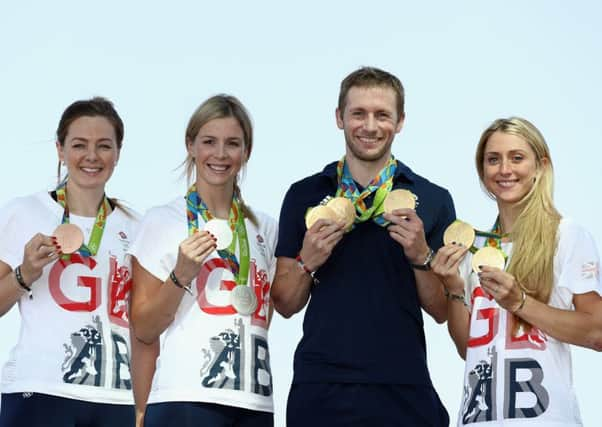Team GB's athletes make '˜sporting history' at Rio 2016


The team arrived in Brazil with the target of winning 48 medals to make Rio 2016 Britain’s best ever “away” Games, but ended up with 67 medals – two more than London’s remarkable haul – and second in the medals table ahead of China.
Rio represents Britain’s most successful Games since 1908, when it also took place in London.
Advertisement
Hide AdAdvertisement
Hide Ad“We’re making sporting history – 67 medals, nearly 130 medallists, across 19 sports,” said UK Sport chief executive Liz Nicholl.
“Even the sporting superpowers haven’t done that in the past, but we are one of those now.”
British Olympic Association chief executive Bill Sweeney agreed with Nicholl and praised the teamwork and “20 years of investment” that have combined to produce “this outstanding performance”.
“Since National Lottery funding started in 1997, we have had five consecutive [summer] Olympic Games of medal growth – no other country has come close to that,” said Sweeney.
It is an oft-repeated statistic that Team GB finished 36th in the medal table, with just one gold, at the Atlanta Olympics in 1996.
A year later, UK Sport was created for the purpose of allocating National Lottery and public funding to elite Olympic and Paralympic sport.
Although super-heavyweight boxer Joe Joyce could win only silver last night, his medal was the 700th won by Great Britain in Olympics and Paralympics since lottery funding started, and Nicholl believes there is no reason to think that Rio is as good as it will get.
She said that 40 per cent of the £275 million UK Sport gave to sports in the Olympic summer programme over the last four years is actually earmarked for Tokyo on a rolling eight-year investment plan, and the national governing bodies of the various sports have already submitted their strategic plans for 2020.
Advertisement
Hide AdAdvertisement
Hide Ad“We have asked them all what is the medal potential for your sport, who are the athletes and what will it cost to win,” Nicholl added. “So we can see from the medal ranges that are in draft at the moment that there is the potential to build on the success.
“The sports will need to reflect on these Games – see which athletes retire and so on – but we are confident we can build on this.”
Sweeney was also upbeat about Team GB’s prospects in Tokyo but said that the competition will be even harder in 2020.
“Tokyo is going to be tougher,” Sweeney said. “We’ll have a much stronger domestic team than we saw here and for political reasons I think China will want to make a strong statement in Japan.
“The Australians won’t take this lying down either, they’ll want to come back, and you will have a full Russian delegation there.”
The BOA spent twice what it had ever spent on its preparations for these Games, and Sweeney said the same amount would be invested in Tokyo. Much of the Rio money went on the holding camp in Belo Horizonte and in finding solutions to Rio’s various accommodation and transport “challenges”.
Sweeney said one of Team GB’s best ideas was to move some athletes – the rowers and sailors, for example – out of the athletes’ village to hotels near their venues. This clearly cost money and would be more expensive in Tokyo.
There are those, though, who have questioned the value for money – and even the ethics – of spending £4m per medal. Nicholl, however, is adamant that Team GB’s success is worth every penny.
Advertisement
Hide AdAdvertisement
Hide Ad“We have all seen and felt the impact of our medal success – it can inspire the nation and make us feel proud and united, no doubt about it,” she said.
“We do it to make Britain an active, proud and happy nation, and that is why the government adds to the pot with exchequer funding.”